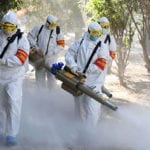 Our World
Our World  Our World
Our World  Animals
Animals 10 Times the Christian Church Took on the Animal Kingdom
 Weird Stuff
Weird Stuff 10 Big Ideas Born in British Pubs
 Travel
Travel 10 Perilous Hikes Still Open to the Public Today
 Facts
Facts 10 Terrifying Facts You Never Wanted to Know
 Weird Stuff
Weird Stuff 10 Fascinatingly Gross Secrets About Your Body
 Miscellaneous
Miscellaneous 10 Groundbreaking & Historical “Firsts” We Witnessed in 2025–So Far!
 Humans
Humans 10 Clever Ways People Have Cheated at Casinos
 Weird Stuff
Weird Stuff 10 Normal Items You Didn’t Know Were Once Part of Burial Rituals
 Misconceptions
Misconceptions 10 Misconceptions in Art & Architectural History
 Our World
Our World 10 Things That Will Make You Rethink Everything Normal
 Animals
Animals 10 Times the Christian Church Took on the Animal Kingdom
 Weird Stuff
Weird Stuff 10 Big Ideas Born in British Pubs
Who's Behind Listverse?

Jamie Frater
Head Editor
Jamie founded Listverse due to an insatiable desire to share fascinating, obscure, and bizarre facts. He has been a guest speaker on numerous national radio and television stations and is a five time published author.
More About Us Travel
Travel 10 Perilous Hikes Still Open to the Public Today
 Facts
Facts 10 Terrifying Facts You Never Wanted to Know
 Weird Stuff
Weird Stuff 10 Fascinatingly Gross Secrets About Your Body
 Miscellaneous
Miscellaneous 10 Groundbreaking & Historical “Firsts” We Witnessed in 2025–So Far!
 Humans
Humans 10 Clever Ways People Have Cheated at Casinos
 Weird Stuff
Weird Stuff 10 Normal Items You Didn’t Know Were Once Part of Burial Rituals
 Misconceptions
Misconceptions 10 Misconceptions in Art & Architectural History
10 Insane Facts You Need To Know About The 2016 US Presidential Race
America is in the grip of election fever. Donald Trump is riling up the nationalistic right. Bernie Sanders is riling up the progressive left. Once a more serious contender, Ben Carson now has many people just shaking their heads at his recent comments. And the media is having a field day with all of it.
Sift through to find the facts, though, and it’s clear that something interesting is already happening in the 2016 contest. With over 300 days to go until the election, everything is subject to change. But right now, as we approach the end of 2015, this is what you need to know.
10Trump May Be Doing Even Better Than You Think
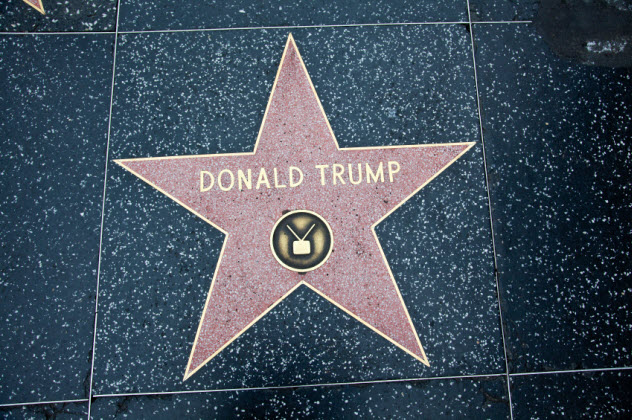
Donald Trump’s political rise has been unexpected by many people. An unconventional candidate at best, he was written off early by people who are probably having nightmares now about him going the distance in this election.
By nearly every established political rule, The Donald should have done a Herman Cain by now and crashed and burned. Yet he continues to lead the GOP field in the majority of polls. At the moment, only Ted Cruz is consistently beating him in a state-level poll in Iowa.
For months, the Republican leadership has been looking the other way, assuming that Trump’s poll lead is overstated. If anything, the opposite may be true. A recent study suggests that Trump’s true lead may be significantly larger than many people think.
Morning Consult used a live interviewer to ask Republicans and Republican-leaning Independents whom they wanted for president. Approximately 32 percent favored Trump. Then a similar group was asked the same question via an anonymized online survey. The number jumped to 38 percent.
Trump is a divisive figure. Nationalistic, loudmouthed, and considered by some to be racist toward Mexicans and Syrians, he has made many people afraid to be publicly associated with him and his often politically incorrect positions. But that doesn’t mean they don’t secretly agree with him.
The phenomenon is called “social desirability bias.” We say things to interviewers that we think are socially acceptable—that we don’t take drugs, that we give to charity, and that we won’t vote for Donald Trump. Then we do the exact opposite privately.
The theory goes that anonymized online surveys give us the chance to vent our true feelings without fear of a backlash. If true, The Donald may be even further ahead than we think.
9Trump’s Rise Is Due Largely To The Media
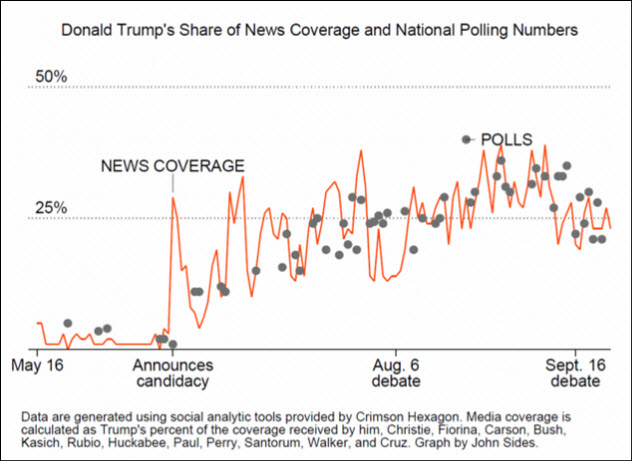
Why?
That’s the big question surrounding Trump. Why would any serious politician say the things he says? Calling some Mexican immigrants “rapists,” threatening to ban all Muslims from America, and making fun of a reporter’s disability are all vile, seemingly nonsensical things to do. Until you look at the poll numbers. The highs in Trump’s campaign strongly correlate with his levels of media coverage.
In September 2015, The Washington Post first covered this phenomenon after a summer of Trump seemingly putting his foot in it. With the above graph, they demonstrated that the more coverage Trump gets—no matter how negative—the higher his polls soar. When that coverage drops off, such as when other candidates began eating into his airtime with their own controversial remarks, Trump’s poll numbers dropped accordingly.
This suggests that every Trump article (including this one) is helping him, no matter how negative. Trump knows this. In his book The Art of the Deal, he wrote: “Good publicity is preferable to bad, but from a bottom-line perspective, bad publicity is sometimes better than no publicity at all. Controversy, in short, sells.”
This election may prove him right.
8Airtime In The Media Is Unfairly Distributed
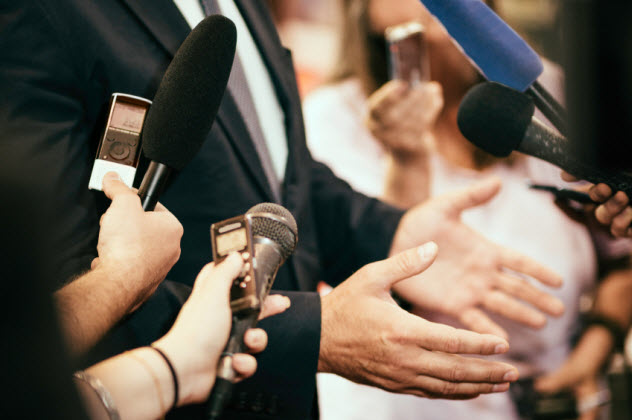
Although Trump’s airtime amounts to free publicity, you could argue that he deserves it. However he got there, he’s now loudly expressing the views of over one-third of all GOP voters. If the media failed to report on these views extensively, they’d be doing the country and the electorate a disservice, right?
Well, that exact thing is already happening, only not in the GOP race. Bernie Sanders currently has the support of about one-third of all Democratic voters. By some measures, his level of support nationwide could be ahead of Trump’s. As The Guardian recently reported, The Bern has received a mere 0.4 percent of the airtime offered to The Donald.
There are many reasons for this. For one, most pundits still consider Bernie an amusing diversion who will shortly be steamrollered by the Clinton juggernaut. For another, how can you expect the media to ignore a candidate like Trump who suggests that the US create a national database of Muslims, which seems to go against everything the Constitution stands for?
Still, it distorts the way most of us hear about the presidential race. According to The Washington Post, Trump has received more coverage than the entire Democratic field combined.
7Money Is Only Whispering In This Election
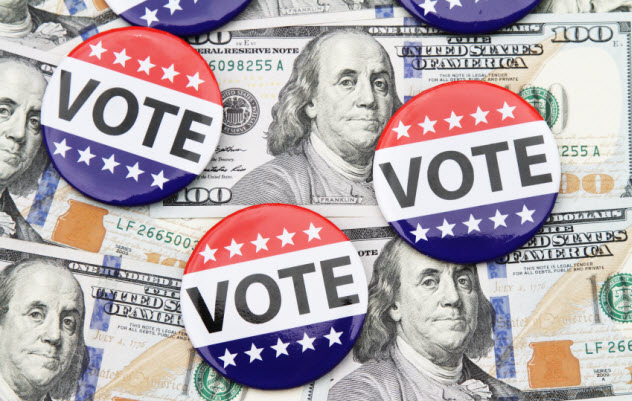
Big money campaign donations are a major sore spot in American politics, especially on the left. Every election cycle brings fears that big business is trying to “buy” the election. If there’s one thing that the 2016 race is already proving, it’s that these fears are unfounded. Right now, the candidates spending the most are doing the worst, especially in the GOP field.
Where ad spending is concerned, Jeb Bush is the winner. As of late December 2015, his campaign has thrown nearly $30 million into targeted ads. Yet he polls barely above 5 percent. On the other hand, Trump has spent almost nothing, yet he polls so high that he leads the field by nearly every possible measure so far.
This pattern is holding true for many of the other candidates. After Trump, Carson, Cruz, and Rand Paul have spent the least amount of money on advertising. Apart from Rand Paul, they’re the ones riding highest in the polls. Only Marco Rubio seems to be both spending on ads ($10 million as of December 2015) and rising in popularity.
Big money appears to be losing its grip on the Democratic field, too. Bernie Sanders’s campaign has now attracted over $2.2 million in donations, beating Obama’s 2008 record. Even though the average donation to Sanders is less than $25, The New York Times has suggested that he may beat Clinton in contributions during the last quarter of 2015. This is potentially good news for democracy and bad news for super PACs and Jeb Bush.
6Lying Is Unevenly Distributed
Politicians are notorious for lying. But it may still surprise us to see evidence of their lies in black and white. Since 2007, the website PolitiFact, a project of the Tampa Bay Times, has checked widely reported statements by politicians against the truth. Their current breakdown of the 2016 race suggests that some politicians lie far more than others.
However, it’s important to understand that some people believe that PolitiFact has a liberal bias, finding Republicans guilty of lying three times as often as Democrats according to a George Washington University study. Some of their fact-checking may also rely more on matters of opinion than fact.
Nevertheless, PolitiFact categorizes statements as “true,” “mostly true,” “half true,” “mostly false,” “false,” or “pants on fire.” This last category is supposedly reserved for lies that are both demonstrably false and patently ridiculous. According to PolitiFact, Donald Trump leads by a large margin in this category. But he may not be the worst overall liar of the campaign season. PolitiFact gives that honor to Ben Carson.
Of all the Carson statements that have been run through PolitiFact as of late 2015, 84 percent are classified as “mostly false” or worse. In the same categories, Trump, Cruz, Rick Santorum, and Carly Fiorina all scored 50 percent or higher. By contrast, PolitiFact has rated only 32 percent of statements from Chris Christie, Rand Paul, and Jeb Bush as “false.”
Their data suggests that the Democratic candidates have lied less overall. With a PolitiFact score of 32 percent, only noncandidate Joe Biden has made a similar percentage of “false” statements as Republican candidates.
Even so, the PolitiFact analyses show some surprises. Despite what his supporters would have you believe, Bernie Sanders lies as often as Hillary. For her part, Hillary makes “true” statements (as opposed to those that are “mostly true”) more frequently.
But the biggest PolitiFact surprise might be the identity of their most truthful politician. With fewer lies than even Barack Obama, Bill Clinton may have finally learned his lesson.
5The Democrats Are In Worse Shape Than You Think
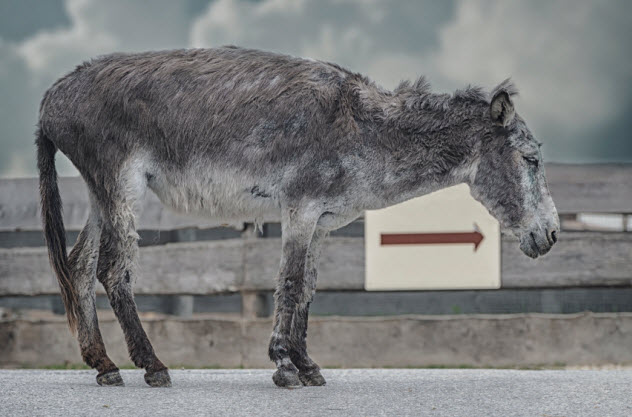
Despite Obama’s personal unpopularity, the Democrats are currently doing fairly well. They’ve held the White House for eight years and may stay there for another four. Hillary appears to be a stable influence, and Trump may be about to implode the GOP. Things are looking rosy.
Or are they? Scratch the surface, and it starts to look like the Democrats aren’t holding together quite so well. In fact, there’s a real chance the party is significantly less healthy than it looks.
Right now, the Democrats control only 10 states. The only time they’ve dipped this low was in 1996. Even then, they still held another seven or so state legislatures, something they aren’t currently doing. They’re also falling apart in the House. Democratic control of the House hasn’t dropped this low since the Truman years in 1947–49.
As voters tend to use elections to give the governing party a kicking, a Hillary win in 2016 could result in the Democrats’ political control plunging even more. Add to that the massive losses they’ve suffered under Obama, and it’s clear the party might not be in such great shape.
4Trump’s Campaign Could Still Derail

In this campaign, Donald Trump has seemingly defied logic by insulting everyone and becoming ever more popular. As mentioned above, his popularity could well be higher than we think it is. Of course, so early in the campaign, there are many factors that could cause him to lose the Republican nomination. But one of the most likely is organization.
Iowa is the first state to vote in the Republican caucus on February 8, 2016. The state’s rules are needlessly complicated and involve almost 1,700 Republican precincts. Voters are herded into a classroom or firehouse where they listen to a speech from the precinct captain, most likely endorsing a certain candidate, and then fill out secret ballots.
To win, a candidate generally needs a large number of excellent precinct leaders on their side and a huge volunteer staff ensuring their voters register and actually vote. Trump has almost none of these things.
His campaign has poured valuable resources into the state, and an early win would bolster him massively. Yet The New York Times has reported that his campaign’s efforts in the state lag behind those of Carson and Cruz. Put another way, Trump could have the support of 99 percent of Iowan Republicans. If the remaining 1 percent are the only ones who turn out to vote, he’ll still lose.
Such an outcome could constitute a deadly blow. Trump’s operations are even weaker in New Hampshire and South Carolina. Some Republicans are already wondering if bad campaign management might do what perceived racism and gaffes couldn’t and finally derail the Trump bandwagon.
3Jeb Bush Might Stage A Comeback
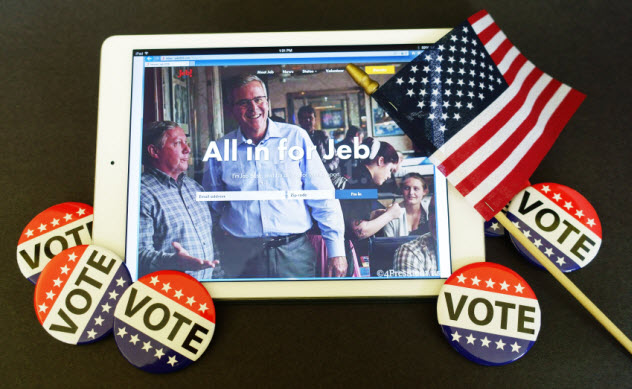
Hard as it is to believe now, Jeb Bush was once considered the front-runner in the Republican race. Then the summer rolled around, and his campaign just disintegrated. He currently polls low, generally performs poorly in debates, and gets little airtime. Most people have written him off—with one big exception. There are signs that New Hampshire could yet spring a surprise and go for Jeb.
This isn’t just hopeful thinking from Bush’s campaign staffers. Local party bigwigs like Beverly Bruce are throwing their weight behind Jeb. His local polls are recovering. Most importantly, he’s spending a lot more time in the state than either Trump or Cruz.
New Hampshire isn’t won on big speeches. It’s won by getting down on the ground, attending town hall meetings, and demonstrating well-considered policies. Bush is now doing this big-time. His campaign has realized that New Hampshire is their last chance and are throwing everything they’ve got at it. Even if the state still swings Trump, coming in second may catapult Bush back into the race.
If that happens, Jeb may finally become a factor in this campaign. He’s the establishment candidate, the person that the GOP bigwigs want to win. If they think he actually has a chance, the fighting will get more intense than it is now. Things could get messy, especially for Trump.
2The GOP Could Be Heading For A Brokered Convention
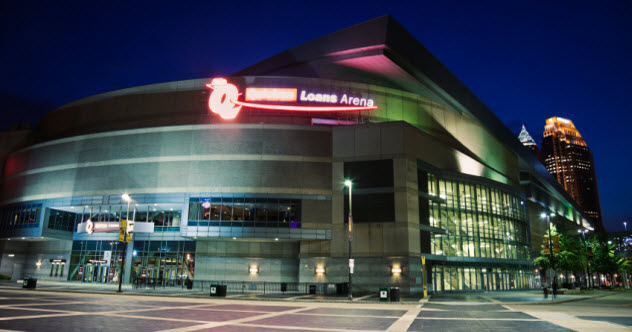
Right now, the question for many GOP primary watchers is: “What if no one wins?” It’s not as unlikely as you think. The Republican Party chooses their nominee based on the number of delegates they pick up before the convention.
For many years, the winner has always held an outright majority of delegates. But that doesn’t mean such an outcome is inevitable. For the first time in nearly 70 years, we might see a brokered Republican convention.
In the event that no one wins the first ballot, delegates can vote for whomever they want. This leads to a frantic series of backroom negotiations as campaigns shore up their support through whatever means are necessary. In 1948, Republicans chose Thomas Dewey this way. The 2016 version may be even crazier.
Republican bigwigs fear a brokered candidate. Such a winner would inevitably be chosen with the establishment’s help, and the current mood among the GOP base is antiestablishment.
To make matters worse, if Trump came close to winning but was then shunted aside during negotiations, some believe that he might launch a third-party bid despite his pledge to remain loyal to the Republicans. If he were to run as an Independent, this could wreak havoc on the GOP’s chances of winning the election.
1Everything Is Still In Play

After all that, it’s worth noting that everything is still in play. We have six weeks until Iowa, six months until the conventions, and over 300 days until the 2016 presidential election. Over such a long stretch of time, anything might happen. It’s even possible that the events in a small, faraway country may have massive repercussions on Americans’ choice for their next president.
If you’d asked a presidential candidate about Syrian refugees in 2014, he or she would have given a polite, short answer. Over the summer, however, the issue of Syria exploded, leading some people to believe that it now defines the GOP race. A few short weeks ago, Carson was on the verge of becoming the Republican front-runner. Then came the Paris attacks and Carson’s weak response to them. Almost immediately afterward, his campaign took a hit from which it has never recovered.
The point is that anything can happen in the next 300 days. A new war could blow up, terrorists could attack, a deadly virus could sweep over the known world, ISIS could collapse, or Putin could decide to retire and move to Florida. Any of those things—and many that are much smaller—could completely change the campaign, making it bigger, crazier, or simply more focused.
At this point, all we know for sure is that everything’s in play. Who knows? A year from now, we might even be writing an article explaining how Deez Nuts managed to get elected president.






